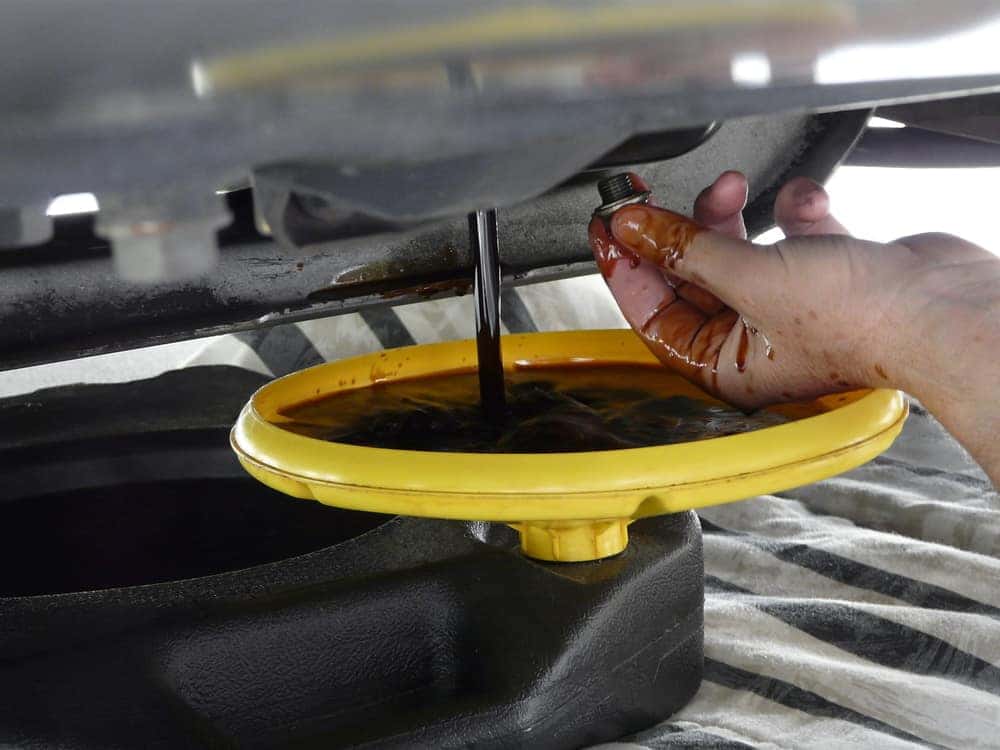How Long Do Oil Changes Take? An oil change typically takes around 30 minutes to an hour. However, the exact time can vary depending on several factors such as the type of vehicle, the oil filter, and the mechanic’s experience.
Regular oil changes are essential for the proper maintenance of any vehicle. It is recommended to change the oil every 5,000 to 7,500 miles or every six months, whichever comes first. Neglecting to change the oil can lead to engine damage, reduced fuel efficiency, and costly repairs.
When getting an oil change, it is important to choose a reputable mechanic or service center. They should use high-quality oil and filters that are appropriate for your vehicle. Additionally, they may perform a quick inspection of your car to ensure everything is running smoothly. By staying on top of regular oil changes, you can extend the life of your vehicle and avoid costly repairs down the line.
Introduction To Oil Changes
Discovering how long oil changes take can vary based on the vehicle and service provider. Typically, an oil change can be completed in around 30 to 45 minutes. However, factors like the type of oil, engine condition, and additional services can influence the duration.
The Importance Of Regular Maintenance
Regular maintenance is crucial to keep your vehicle running smoothly and to extend its lifespan. One of the most essential aspects of maintenance is getting regular oil changes. Neglecting this simple task can lead to major engine problems and costly repairs down the line. By prioritizing regular oil changes, you can ensure that your engine stays properly lubricated, reducing friction and preventing wear and tear.
What Is An Oil Change?
An oil change involves removing the old oil from your engine and replacing it with fresh, clean oil. During this process, the old oil filter is also replaced with a new one. The filter plays a vital role in trapping contaminants and preventing them from circulating through the engine. By replacing both the oil and the filter, you can maintain optimal engine performance and protect against potential damage.
Factors Affecting Oil Change Duration
Several factors influence oil change duration, including driving habits, vehicle age, and manufacturer recommendations. Regular oil changes typically take about 30-45 minutes at a service center. It’s crucial to follow maintenance schedules to ensure optimal engine performance and longevity.
Factors Affecting Oil Change Duration Vehicle Make and Model The type of vehicle you drive impacts the time it takes to complete an oil change. Older vehicles may have more complex systems that require additional time, while newer models with streamlined designs can expedite the process. Type of Oil Used The viscosity and quality of the oil being used can influence the duration of an oil change. Thicker oils may take longer to drain and replace compared to lighter, synthetic options.
Additionally, high-quality synthetic oils can often extend the time between necessary changes. When considering how long an oil change will take, it’s important to take into account both the vehicle make and model as well as the type of oil being used. These factors can significantly impact the duration of the process.
Diy Vs. Professional Oil Changes
When it comes to maintaining your vehicle’s engine health, regular oil changes are crucial. While some car owners prefer the convenience and cost-effectiveness of performing their own oil changes, others opt for professional services to save time and ensure a job well done. Let’s explore the time considerations for DIY oil changes versus the speed of professional services.
Time Considerations For Diy
Performing a DIY oil change can be a rewarding experience for those with the necessary skills and tools. However, it’s important to consider the time it takes to complete the task. Here are a few time-related factors to keep in mind:
- Time Investment: DIY oil changes typically require more time compared to professional services. You’ll need to gather the required materials, locate the oil filter, drain the old oil, replace the filter, and refill with fresh oil. This process can take anywhere from 30 minutes to an hour or more, depending on your experience and familiarity with your vehicle.
- Learning Curve: If you’re new to DIY oil changes, expect a learning curve. It may take a few attempts before you become comfortable and efficient with the process. Researching your vehicle’s specifications and following the manufacturer’s guidelines is essential to avoid mistakes.
- Cleanup and Disposal: Once you’ve completed the oil change, you’ll need to dispose of the used oil properly. This involves transporting it to a recycling center or an authorized collection point. Proper cleanup and disposal can add additional time to the overall DIY process.
Speed Of Professional Services
Professional oil change services are known for their efficiency and speed. Here’s what you can expect when opting for professional assistance:
- Quick Service: Professional technicians are experienced in performing oil changes, allowing them to complete the process swiftly. Depending on the service provider and the workload, an oil change can typically be done within 15 to 30 minutes.
- Specialized Equipment: Professionals have access to specialized tools and equipment designed to streamline the oil change process. This allows them to work efficiently and ensure the job is done correctly.
- Additional Inspections: Along with the oil change, professionals often conduct a quick inspection of your vehicle to identify any potential issues. This can help catch problems early on and save you time and money in the long run.
Whether you choose to perform a DIY oil change or seek the assistance of professionals, it’s important to prioritize regular oil changes to maintain your vehicle’s performance and longevity. Consider your time availability, skill level, and convenience when deciding which option works best for you.

Credit: www.bmwatlanticcity.com
Average Time For An Oil Change
When it comes to getting an oil change, one of the key factors to consider is the amount of time it takes. We all lead busy lives, and finding the time to get our vehicles serviced is essential. The average time for an oil change can vary depending on where you go for the service. In this blog post, we will explore the time it takes at quick-lube stations and dealership service centers.
Quick-lube Stations
Quick-lube stations are known for their speedy service, making them a popular choice for those looking for a quick oil change. On average, the time it takes at a quick-lube station ranges from 15 to 30 minutes. These stations are designed to efficiently service multiple vehicles at once, ensuring a fast turnaround time. The process typically involves draining the old oil, replacing the oil filter, and refilling with fresh oil. With their streamlined operations, quick-lube stations prioritize efficiency without compromising on quality.
Dealership Service Centers
Dealership service centers, on the other hand, offer a more comprehensive approach to oil changes. While they may take slightly longer than quick-lube stations, the benefit lies in the expertise and attention to detail provided by trained technicians. On average, an oil change at a dealership service center can take anywhere from 30 to 60 minutes. This additional time allows for a thorough inspection of your vehicle, including checking fluid levels, inspecting belts and hoses, and performing other maintenance tasks. Dealership service centers prioritize not only the oil change itself but also ensuring the overall health of your vehicle.
In summary, the average time for an oil change can range from 15 to 30 minutes at quick-lube stations, while dealership service centers may take 30 to 60 minutes. Both options offer their own advantages, so it’s important to consider your priorities and schedule when choosing where to get your oil change. Whether you prefer a quick and efficient service or a more comprehensive approach, regular oil changes are crucial for maintaining the performance and longevity of your vehicle.
Steps Involved In Changing Oil
When it comes to maintaining your car, regular oil changes are crucial for keeping the engine running smoothly and efficiently. How Long Do Oil Changes Take? Understanding the steps involved in changing oil can help you anticipate how long the process will take. Let’s take a closer look at the essential steps involved in this routine maintenance task.
Draining Old Oil
First, the old oil must be drained from the engine. This involves locating the oil drain plug underneath the vehicle, usually near the bottom of the engine. Once the plug is removed, the old oil can be drained into a suitable container. This step typically takes around 5 to 10 minutes.
Replacing The Oil Filter
After the old oil has been drained, the next step is to replace the oil filter. The oil filter is usually located near the oil pan, and it needs to be unscrewed and removed. Once the old filter is off, a new one can be installed. This step generally takes about 5 minutes to complete.
Adding New Oil
With the old oil drained and the new filter in place, it’s time to add fresh oil to the engine. The amount and type of oil needed will depend on the specific vehicle, so refer to the owner’s manual for guidance. Typically, adding new oil takes around 10 to 15 minutes, including checking the oil level and securing the oil cap.
Tips To Expedite The Oil Change Process
An oil change is a routine maintenance task that keeps your car’s engine running smoothly. However, the time it takes to complete an oil change can vary depending on several factors. Here are some tips to help expedite the oil change process, ensuring a quick and efficient service.
Scheduling And Planning
Schedule your oil change appointment in advance to avoid long wait times at the auto service center. This allows the technicians to allocate sufficient time for your vehicle, reducing overall wait times for everyone.
If possible, schedule your oil change during non-peak hours, such as weekdays or early mornings. This can help minimize the waiting time and expedite the service process.
Preparation Before The Service
Prior to your appointment, ensure you have the necessary information ready, such as your vehicle’s make, model, and mileage. This preparation can streamline the check-in process and help the technicians get started promptly.
Remove any personal items from your car, such as bags, toys, or valuables. This not only ensures the technicians have clear access to the vehicle but also prevents any items from getting misplaced during the service.
When To Opt For An Oil Change
An oil change typically takes around 30-45 minutes, depending on the service center’s efficiency and workload. It’s important to opt for an oil change as per your vehicle manufacturer’s recommended schedule to ensure optimal engine performance and longevity. Regular oil changes are crucial for maintaining your vehicle’s health and preventing potential mechanical issues.
Mileage And Time Indicators
Regular oil changes are vital for your car’s health. Mileage and time are key factors.
Monitoring Oil Quality And Level
Check oil quality and level to determine the need for a change.

Credit: www.mercedesbenzofcharleston.com
Conclusion: Maximizing Efficiency
Maximizing efficiency in oil changes is crucial. By using advanced tools and streamlining processes, the time for an oil change can be reduced to around 30 minutes, ensuring minimal disruption to your day. This allows for more efficient and convenient maintenance of your vehicle.
Benefits Of Timely Oil Changes
Regular oil changes ensure optimal engine performance and longevity.
Prevents costly repairs and breakdowns.
Improves fuel efficiency and reduces emissions.
Preserves engine cleanliness and prevents sludge buildup.
Final Thoughts On Oil Change Timing
Consistent oil changes are crucial for a healthy engine.
Maximize efficiency by following manufacturer’s recommended intervals.
Trust professional technicians to complete oil changes promptly.

Credit: www.toyotaofdanvers.com
Frequently Asked Questions
How Long Does An Oil Change Usually Take?
An oil change typically takes around 30 minutes to an hour. However, the duration can vary depending on the type of vehicle, oil type, and other factors. It’s always best to check with your mechanic or dealership for a more accurate estimate.
Can I Wait For My Oil Change To Be Done?
Yes, most service centers have a waiting area where you can relax while your oil is being changed. You can also schedule an appointment to minimize your wait time.
How Often Should I Get An Oil Change?
It’s recommended to get an oil change every 5,000 to 7,500 miles or every six months, whichever comes first. However, this can vary depending on your vehicle’s make and model, driving habits, and the type of oil being used. Consult your owner’s manual for specific recommendations.
Is It Necessary To Use Synthetic Oil For An Oil Change?
While synthetic oil can provide better performance and protection, it’s not always necessary. Regular oil can also do the job just fine, as long as it meets your vehicle’s specifications. However, synthetic oil may be recommended for certain high-performance or luxury vehicles.
Conclusion
Oil changes typically take about 30-45 minutes. Regular maintenance ensures engine longevity. Following manufacturer recommendations is crucial. Stay informed on your vehicle’s needs. Prioritize timely oil changes for optimal performance and vehicle health.


